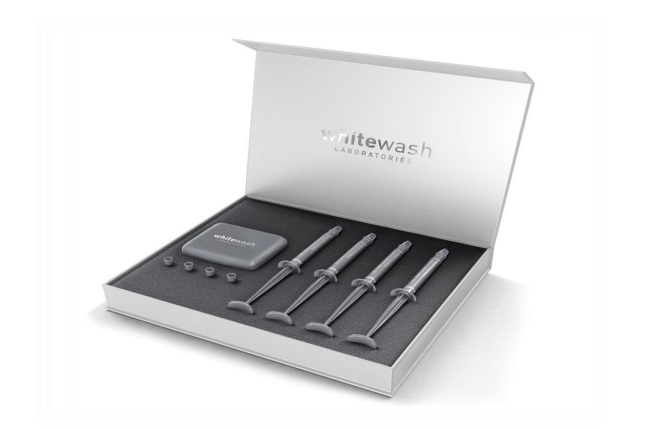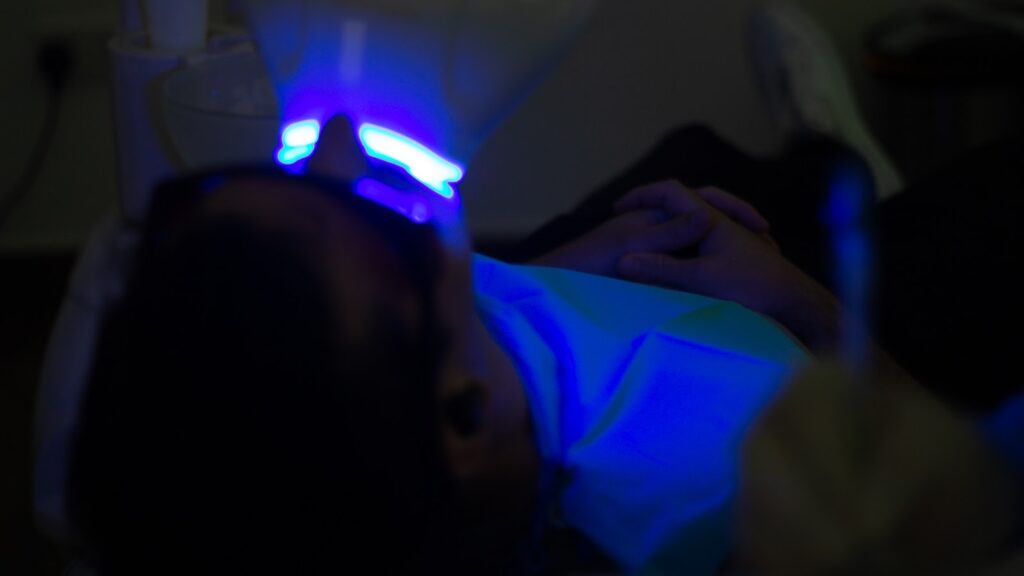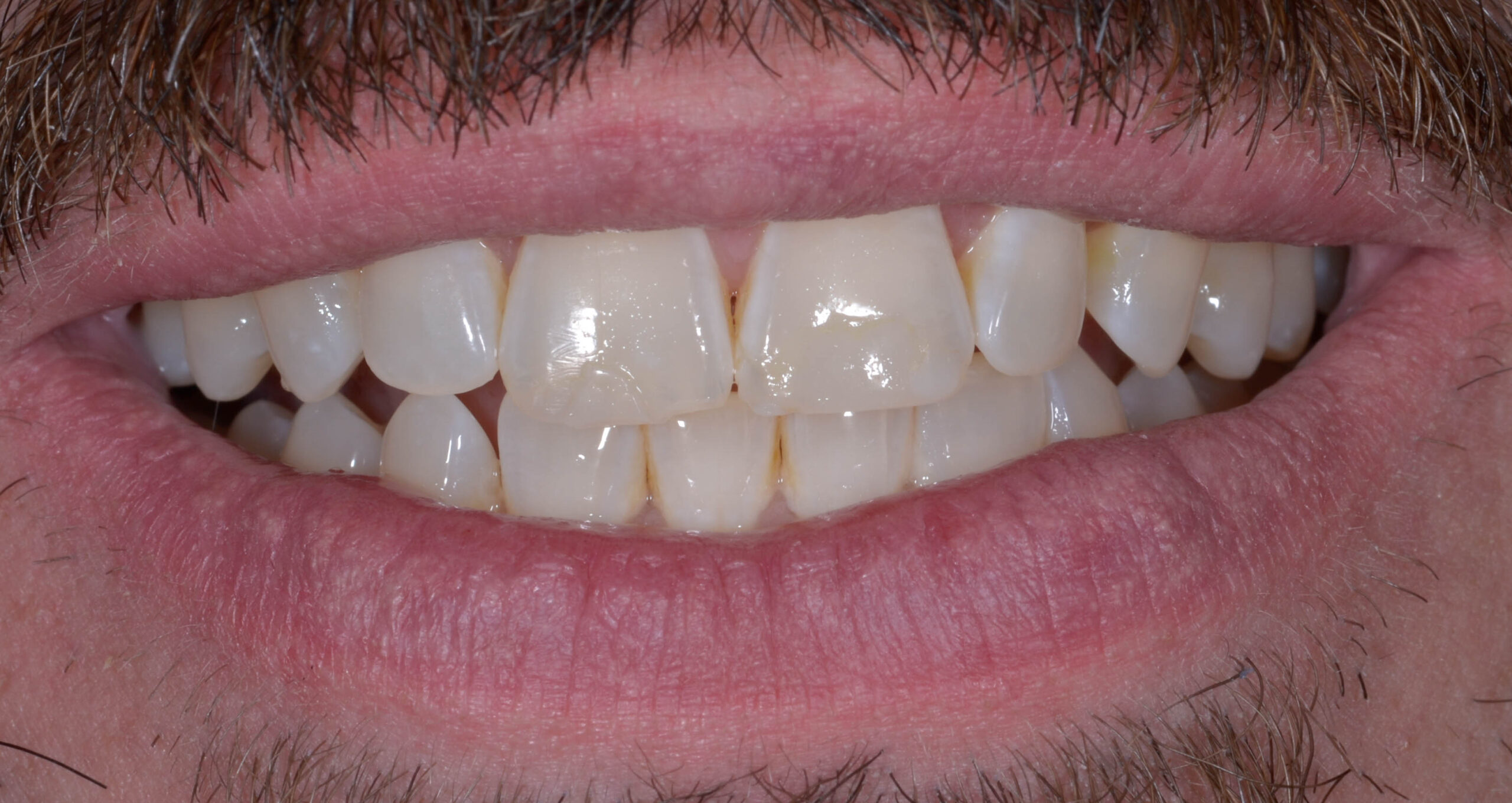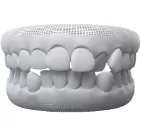“The prettiest thing you can wear is a SMILE.”
A bright white smile is associated with health, confidence, and beauty. However, achieving and maintaining a bright smile can be challenging for many people. Nowadays, an increased demand for at-home teeth whitening products and cosmetic teeth whitening procedures has been witnessed.
Did you know that the global market for teeth-whitening products is expected to grow at a CAGR of 6.03%, from USD 5,205.4 Mn in 2022 to USD 8,732.6 Mn by 2031?
If you also want whiter teeth but don’t know where to start, you’re at the right place. We have curated a guide that will answer all your questions regarding teeth whitening. So, without ado, let’s get started!
What is Teeth Whitening?
Teeth whitening is a procedure that aims to lighten the appearance of teeth and remove stains. You can have it done by a professional orthodontist or do it on your own at home.
Teeth whitening is commonly done using peroxide-based bleaching agents. Teeth whitening dentists use solutions with 15-43% peroxide concentration, whereas at-home kits contain 3-20% peroxide concentration.
The higher the peroxide concentration, the whiter your teeth will become. However, never leave a higher peroxide-level solution for too long. Otherwise, it can enhance tooth sensitivity and dehydration.
Causes of Tooth Discoloration
Knowing the type of tooth discoloration and its underlying cause is essential before we understand how to keep teeth white. So, let’s discuss.
There are two types of tooth discoloration – Extrinsic and Intrinsic. Extrinsic discoloration affects the outer enamel, whereas intrinsic discoloration affects the dentin (the layer underneath your enamel).
There are several reasons for tooth discoloration, including:
- Aging
- Trauma
- Genetics
- Liver disease, celiac disease, calcium deficiency, etc.
- Usage of certain medications like antihistamines, tetracycline or doxycycline
- Smoking
- Poor oral hygiene
- Too much coffee, tea, berries, red wine, soy sauce
- Excessive fluoride use
Can Tooth Stains Help Find the Potential Cause of Tooth Discoloration?
Yes, the color of tooth stains can help you find the primary cause of tooth discoloration. Here is what different tooth stains refer to:
- Yellow stains are commonly due to eating and drinking dark-colored beverages or poor oral hygiene.
- Brown tooth discoloration is a result of smoking or tobacco use. However, if you notice small holes and brown stains, it can be due to untreated tooth decay.
- People who consume a lot of red wine may experience purple stains on their teeth.
- Dental trauma can lead to gray teeth.
- White flecks on your teeth can be due to dental fluorosis.
- Black spots refer to severe tooth decay.
Teeth-Whitening Options: Which is Best for You?
There are two types of teeth whitening options – professional teeth whitening and at-home teeth whitening kits. No matter what option you choose, it is recommended to consult your dentist.
At-Home Teeth Whitening Kits

At-home teeth whitening kits are an easy and effective way to achieve a brighter smile. This kit is a collection of trays and tubes filled with whitening gels or syringes, and a personalized trays provided along with the kit.
The whitening gels contain hydrogen peroxide and carbamide peroxide. Floss and brush your teeth at least 30 minutes before applying the gel. Avoid immediate application after brushing to prevent gum irritation. Use NANO mouthwash beforehand to minimize sensitivity.
Apply a thin line of gel halfway up the inner front surface of the tray, aligning it with the front of your teeth. Do not spread the bleach around. Recap the syringe for future use.
Insert the whitening tray into your mouth, ensuring it fits snugly over your teeth. Wipe away any excess gel that overflows onto your gums.
However, before you opt for at-home teeth whitening kits, it is recommended to consult your dentist.
| Note: The kits follow a one-size-fits-all approach. They may not be an ideal option for everyone. |
Professional Teeth Whitening

Professional teeth whitening is an efficient, safe, and effective cosmetic dental procedure to brighten your smile. While professionals also use carbamide peroxide and hydrogen peroxide to treat stained and discolored teeth, the only difference is the higher chemical concentration.
Your dentist will cover your gum tissues with a thin sheet of rubber or a protective gel. They may also use a laser or curing light to speed up the activation of the peroxide.
However, professional teeth whitening tends to be relatively expensive than at-home teeth whitening kits.
Which One to Choose?
Choosing between professional teeth whitening and at-home teeth whitening kits depends on various factors, including:
- Budget: At-home kits are generally more affordable compared to professional treatments.
- Convenience: At-home kits can be used at your convenience, while professional treatments require a visit to the dentist.
- Effectiveness: Professional treatments are typically more effective and quicker, offering more noticeable results in a shorter period.
- Sensitivity: If you have sensitive teeth, a professional treatment might be better suited as dentists can tailor the concentration and protect your gums more effectively.
How to Naturally Keep Your Teeth White at Home?
Teeth can appear yellow for various reasons, but following the right strategies may help slow down or reverse the process. So, here is what you can do to keep your natural teeth white at home:
Practice Oil Pulling
Traditionally, oil pulling is widely used to enhance oral hygiene and remove toxins from the body. It involves washing one’s mouth with oil to remove dirt, bacteria, and debris.
While it is not an alternative to brushing and flossing, washing your teeth with certain oils can help whiten them.
According to research published in NCBI, regularly swishing oil around in your mouth can help reduce Streptococcus mutans, a primary bacteria that causes plaque and gingivitis. All you need to do is rinse your mouth with oil for approximately 20 minutes after brushing and then spit it out.
Common oils used for oil pulling include:
- Coconut oil
- Sunflower oil
- Sesame oil
Brush with Baking Soda
Baking soda has natural whitening properties. That is why it is a primary ingredient of toothpaste. Not only can it help remove stubborn stains on teeth but also prevent bacterial growth by creating an alkaline environment in the mouth.
However, you won’t see results in one night. You have to use it regularly to see the results. To use this remedy, you have to mix 1 tsp of baking soda with 2 tsp of water and brush your teeth with the past.
Use Hydrogen Peroxide
Hydrogen peroxide is a bleaching agent that can help whiten teeth and kill bacteria in the mouth. In fact, it has been found that toothpaste containing a higher concentration of hydrogen peroxide is more effective than toothpaste with lower concentrations.
| Note: Using strong concentrations or overuse of hydrogen peroxide can cause gum irritation and tooth sensitivity. So, make sure you heavily dilute it and use it as a mouthwash before brushing your teeth. |
Limit Dark-Colored Foods And Beverages
While dark-colored foods and beverages, such as coffee, red wine, and dark berries, can stain teeth, it doesn’t mean you should completely avoid them.
You can use a straw to drink beverages to avoid direct contact with teeth or limit the amount of these substances. In addition, you can brush your teeth after having such foods or beverages.
Limit Sugar Intake
A diet high in sugar can promote Streptococcus mutans’ growth. Therefore, it is recommended to reduce your consumption of sugary foods and brush your teeth as soon as possible.
In addition, you can follow the commonly-known tips for teeth whitening:
- Eat fruits and vegetables
- Regularly brush and floss your teeth
- Don’t forget to clean your tongue
- Add calcium to your diet
- Try activated charcoal
- Schedule bi-annual teeth cleaning appointments
How Do Dentists Treat Tooth Discoloration?
Dentists use different tooth discoloration treatment options depending on the underlying cause and whether the stains are on the outer or inner layer. So, here is how dentists can help treat discolored teeth:
Teeth Whitening
A dentist may recommend you in-office or at-home teeth whitening treatment. In this method, hydrogen peroxide or carbamide peroxide solution is used to whiten your teeth. In-office teeth whitening procedures may take one hour, whereas at-home teeth whitening kits require 30-60 minutes daily for up to 6 weeks.
Dental Bonding
In case of a deep discolored tooth that doesn’t go away with teeth whitening procedures, your dentist may recommend dental bonding. It is a process of applying tooth-colored composite resin to the discolored tooth. However, you have to schedule your appointment with your dentist frequently for touch-ups.
Porcelain Veneers
If you have several discolored teeth and it doesn’t go away with teeth whitening, your dentist may recommend you consider porcelain veneers. In this process, the dentist will bond tooth-colored ceramic shells with your teeth to hide discoloration and other cosmetic flaws, like chipping and broken teeth.
Dental Crowns
If tooth discoloration is due to cavities, your dentist may recommend dental crowns. A crown is a tooth-shaped cap that fits over your tooth. Not only does it help hide tooth discoloration but also protect your teeth from further damage.
Who Should Get Their Teeth Whitened?
While anyone can choose teeth whitening treatment, it depends on their budget. However, people who have dental implants, veneers, crowns, or bridges might not be ideal candidates for teeth whitening.
Before you go ahead, make sure you consult your dentist. An orthodontist can suggest you an ideal treatment for your age and oral health.
Is Teeth Whitening Safe?
Although teeth whitening is a safe cosmetic dental procedure, some people may experience temporary tooth sensitivity after this treatment.
In addition, mouth and gum irritation is common. However, a dentist will cover your gum tissue with a protective layer to minimize gum irritation.
Remember that frequent teeth whitening for a long time can permanently damage your tooth enamel. So, make sure you schedule your appointment at a dental clinic in Dubai to get safe and effective results.
At Mint Dental Clinic, we have a team of skilled dental specialists who are committed to providing our patients with outstanding dental services. From teeth whitening to emergency dental care, we offer a range of dental services. We strive to make a lifelong relationship with our clients. So, you will receive exceptional patient care at our dental clinic.
So, what are you waiting for? Get in touch with us and schedule your teeth whitening appointment today!















